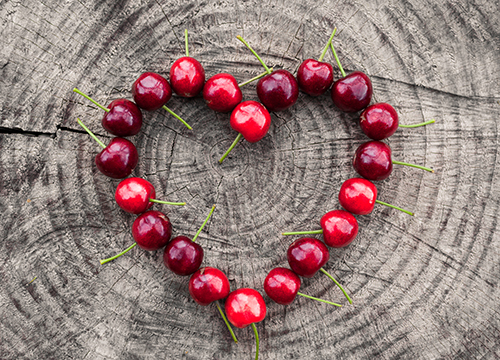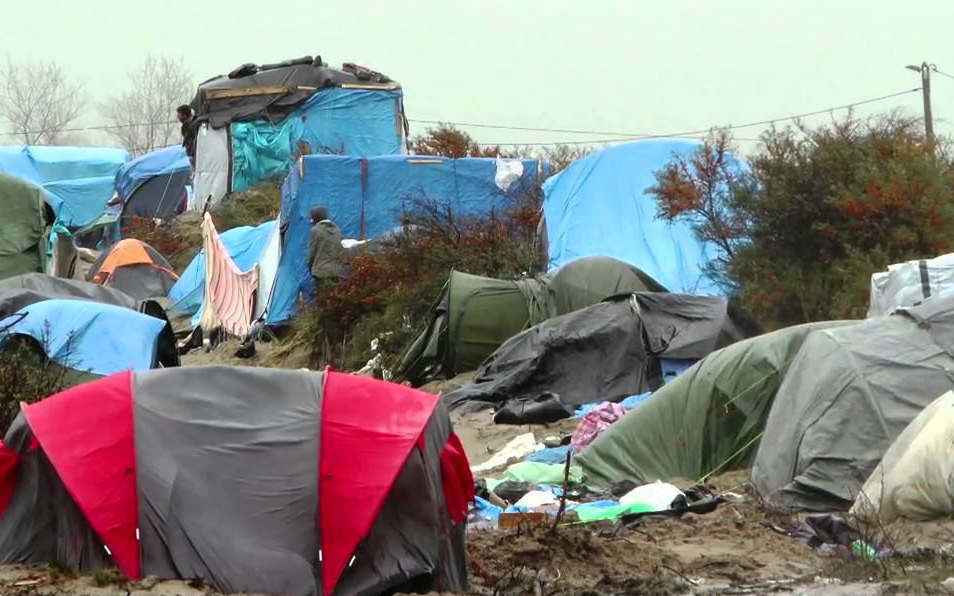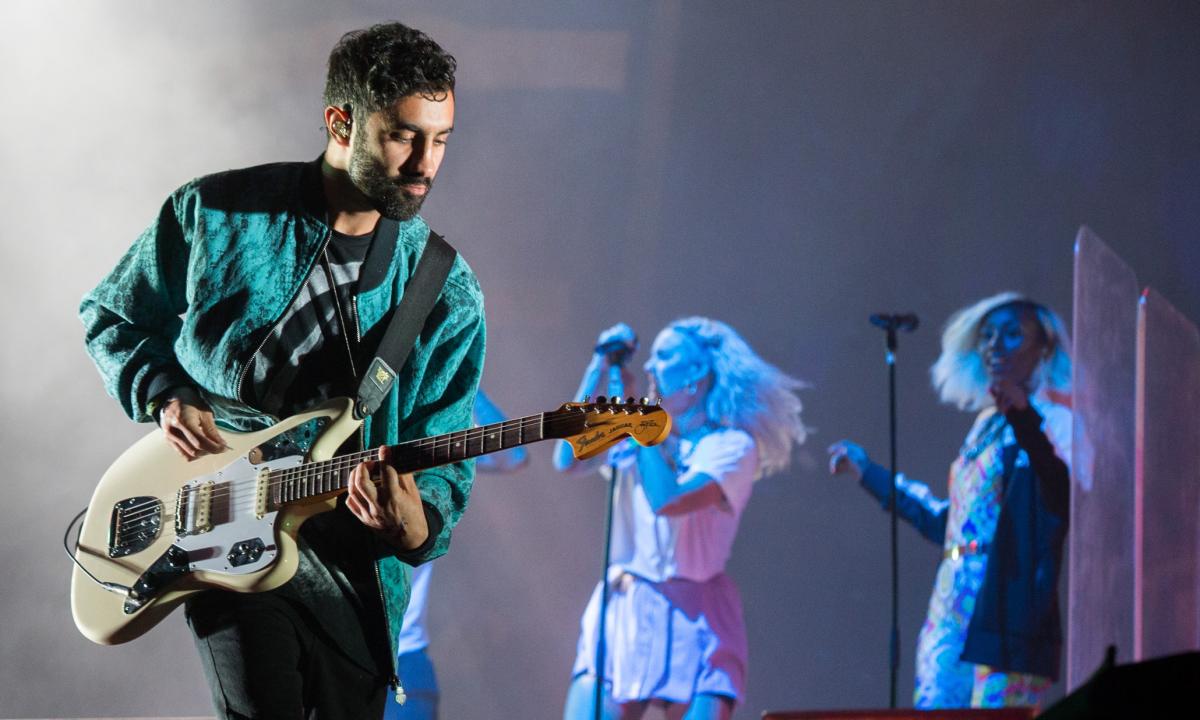Ali Ryland interviews Rudimental member and record producer Amir Amor on his vegan philosophy, his experiences as a vegan on tour and his unsettled upbringing.
Amir Amor (née Amir Izadkhah) is a member of one of the most dynamic drum and bass acts on the circuit, playing sold out show after sold out show at some of the UK’s top venues. Having paved the way for their success with number 1 hits ‘Feel the love’ and ‘Waiting all night’ from first album ‘Home’, the band have gone from strength to strength since current album 'We The Generation'. Having recently started working on their hotly anticipated third album, Rudimental have the Brits to look forward to next week, where ‘Bloodstream’ is nominated for British Single of the Year.
I meet Amir at his studio near King’s Cross, settling into the comfy ambience as he offers me some herbal tea. We discuss his prime location, and I express surprise that he hasn’t yet sampled vegan shop and takeaway Vx, ten minutes down the road, though he assures me he’ll check it out. New to the area, Amir is keen to leave the bustling smog of London for pastures new: specifically an off the grid eco-recording studio in Sussex.
It’s clear from his surroundings that Amir is ecologically conscious, while his decorative South-East Asian sarongs-cum-window dressings conjure up a neo-hippy vibe. I almost expect to see a lava lamp in the corner.
We delve right into the reason I’m here: veganism. Amir has had a complicated relationship with meat. The ‘initial spark’ that made him realise its negative impacts was instigated by his late mother, who became a vegetarian in the late 80s. Having been vegetarian in his youth due to her influence, Amir found himself drifting away from it in his late teens due to lack of understanding. “I lost touch with myself a little bit… I lost touch with it,” he admits ruefully. This wasn’t to last though, as through ‘seeing the bigger picture’ he found his way back over six months ago, this time as a vegan.
“It took me a long time, it took me a whole journey to understand [why we should be vegan], but I’m really thankful that I get it: it’s changed my life completely.”
“I had some idea about the way dairy is made but I didn’t realise it’s as impactful as eating meat itself, and actually in some ways worse,” he explains. “When I understood that it all became clear: I now have a much clearer understanding of why people should be vegan, why humans should really be vegan.”
“It took me a long time, it took me a whole journey to understand that, but I’m really thankful that I get it: it’s changed my life completely.”
Amir’s journey towards veganism was informed by a spiritual side passed down from his mother, as well as the ethics of animal exploitation. “She was raised as a Muslim in Iran, but she found herself going to India very often: she meditated and she taught me how to as well from a young age.” Amir mentions that his mother was influenced by Zorastrianism, the official religion of Iran before Islam superseded it in 700AD. Zoroastrianism, with its emphasis on protecting nature and the Earth, has been said by some to be the world’s first ecological religion: an appropriate fit with veganism.
While not all of Rudimental understand Amir’s holistic vegan philosophy, he’s fortunate in the fact that his bandmate Piers Aggett recently embraced the lifestyle at the same time as Amir.
“He went straight from meat eater to vegan… he is finding it hard not to be influenced by meat-eaters, but he’s doing alright,” Amir admits. While Amir has more experience at the lifestyle thanks to his history as a vegetarian, there are times when he finds it hard to communicate to his bandmate the importance of his veganism, especially when touring.
“They’re full on carnivores, full on meat eaters… they all go to KFC, and you know, I’d eat whatever I can find. It can be hard to find stuff at motorways. It’s quite mad, the standardisation, the mono-culture food experience that we have in motorway services in a lot of England.”
"[Veganism] has improved leaps and bounds. It’s definitely becoming easier, it’s definitely becoming more acceptable. Hopefully we can carry on that way.”
The standard British experience of beans, chips and peas, I offer.
 “Yeah it’s almost like we’ve forgotten what’s good for us and we’re so confused that we think what’s bad for us is good for us and what’s good for us is bad for us. There’s a lot of change that needs to be done in middle England in food service places.”
“Yeah it’s almost like we’ve forgotten what’s good for us and we’re so confused that we think what’s bad for us is good for us and what’s good for us is bad for us. There’s a lot of change that needs to be done in middle England in food service places.”
Amir is more positive about the experiences vegans can have in different parts of the world. “In some other countries, it’s easy,” he begins. “In south-east Asia and Kuala Lampur it was actually easier.”
I ask whether he thinks veganism is on the rise, whether that change is already happening. He sits back and ponders before affirming that things have changed for the better, though often because we’re more concerned by the size of our waistlines than the non-humans involved. “It’s on the rise at least: it might be for vanity but at least people are thinking about what they’re eating a bit more.”
"If we have to think about all beings as equals, not just humans, that’s a change in mentality. If you are a vegan, you’re already well on the way towards [seeing everyone as equal]: we just have to start with ourselves.”
Healthy, conscious eating is important to Amir, whose circumstances haven’t always allowed his diet align with his body’s needs. “I was born in Iran and I came to London in the early 90s. I grew up in an area called Somers Town, and there was literally f*ck all good food let alone vegan food or veggie food at that time, so it has improved leaps and bounds. It’s definitely becoming easier, it’s definitely becoming more acceptable. Hopefully we can carry on that way.”
I ask him how his friends and family have reacted to him being vegan. Amir looks down before replying.
“I guess a lot of people find it really difficult to understand why you would seemingly deny yourself the things that you’d want because they think it comes from a place of desire”. He adds that this is a misunderstanding, and that the image, the stigma of what a vegan should be – skinny, frail even – has influenced his friends negatively.

“Actually I kind of believed in that up until quite recently” he adds wryly. “It’s hard to shake off because some people immediately think you’re weird, even bulimic: that you’re basically unhealthy. They don’t realise that it’s actually the opposite, and that we’re actually rather brainwashed to think that way.”
Luckily he has been gaining traction with his friends, changing hearts and minds one at time. With bandmate Piers and another, he’s been showering them in encouragement, reminding them of all the reasons to be vegan. “I think it’s really important that we educate each other,” he says earnestly. “We really need to get rid of that stigma by just trying to inform one person around you: that’s a good start.”
“If you’ve got people that trust you in your circle, and you truly believe in veganism as a cause, and as a way of living for all humans, then you should try and inform those closest to you at least, because then they’ll inform others, and the stigma will be reduced.”
Amir knows a lot about stigma first-hand, not just from his experience as a vegan, but from lifelong racism and prejudice based upon his race, and his status as an Iranian refugee.
“We spent about two years sleeping in random halfway houses, sleeping nowhere at all, sleeping anywhere that we could," he says seriously. "I was a kid so you only really know the significance of the situation from the reactions of your parents. So for me I was kind of rolling along with it and it’s only now that I look back I can kind of understand what was going on. It was hard, mostly for my mum. It was just her at first, then my family came along with my severely disabled brother."
“Some people immediately think you’re weird, even bulimic: that you’re basically unhealthy. They don’t realise that it’s actually the opposite, and that we’re actually rather brainwashed to think that way.”
Amir notes his surprise that the John Major-led Conservative government at the time was more welcoming than the New Labour government that followed, led by Blair.
“There wasn’t as much scaremongering. But now, there’s a lot more discrimination, there’s a lot more fear in the world now. We were starting to get to a good point, and then we went downhill again,” he laughs.
In a nation where refugees are forced to live in squalid, wretched conditions right on our doorstep and yet few care, I wonder if we can move past that fear.

“I think we can move past it: we all have the capability. Every little helps, I mean even being vegan helps, it's actually more helpful than a lot of other things really,” he conjectures. “It’s just really hard because it’s so tied in with greed, it’s tied in with capitalism, it’s tied in with commercial globalisation, expansion and growth. The idea that we constantly need to make more and more each year, we’re constantly in more debt… as long as that cycle is going on there’s gonna be a divide between people.”
I nod my head with agreement. Amir refills my green tea from his earthenware pot before continuing.
“But at the same time all this scaremongering and anti-foreigner talk is being normalised. When September 11th happened, I came into school and a friend ran up to me and said “Ah you f*cking bastards! Look at what you did!” and it was like “Huh? What you talking about?!” And then I found out and it really boggled my mind how he was connecting that to me. Then I realised it’s what he’s consuming, it’s the media that he’s taking in. We’ve just gotta start with ourselves, that’s the only thing I can say, we’ve gotta start with ourselves as individuals: being vegan is a great start.”
I ask him if it’s a way we can buck the system merely by not consuming what we’re told to consume. “Exactly,” he agrees. “I mean if we have to think about all beings as equals, not just humans, that’s a change in mentality. If you are a vegan, you’re already well on the way towards [seeing everyone as equal]: we just have to start with ourselves.”
As veganism and anti-speciesism is tied up with such an important mentality, it’s imperative to spread the word. Amir reiterates that the best thing we can do is start with those closest to us. “Just start implanting the ideas of the benefits of it, whether that be physical, health benefits, or whether it’s ethical and environmental benefits, whatever you think would relate to that person.”
“New Labour just cut a lot of things away from the arts and from the youth, and in this day and age – in any day and age – the arts are the things that most relate to young people, especially in this world of stringent categories.”
Amir’s been busy using his influence to encourage restaurants and cafes to bring out vegan menus, something that any of us can do simply by contacting the owners and managers of eateries. Amir is lucky to have an existing relationship with food companies thanks to his prominence as a music star: especially considering the fact that if his younger self tried to make it in music today, it would be nearly impossible.
“I wanted to be an artist. I was like barely in school. Didn’t have a TV, didn’t have any of that stuff, so like I was always kind of in my own world basically. And so I got into art – I was basically bunking school and spray-painting trains, you know and I was into garage music and grime music and all that.”

He pauses to think about what sprung him from spray paint to fame. “I guess the trigger was this girl in school who I phoned up once and she was rapping on her voicemail, and I was like, ‘how the hell did you do that?’ She said: ‘there’s a studio in Camden that I’ve been going to, it’s like a Youth Club really, you should come down.’ And at that point I had a tape recorder that you could overdub on kind of, if you pressed the play and record button down halfway, you could,” he remembers fondly.
“I was beatboxing and then I was singing baselines and melodies on top of it, and layering up these funny little tunes. And I took that with me really naively thinking I’m gonna do something, and I went there and I didn’t get any slots on the courses they were doing for about six months. But eventually she actually gave up her place in one of the classes and said I want you to come and do it, and so I went.”
Thanks to this lucky break, 17 year old Amir was later able to apply to the Prince’s Trust for a £2500 Hatton Award grant after his stint as a youth worker, having progressed from pupil to teacher at the council-funded Youth Club. After buying his first computer, guitar, bass, keyboard and microphone, Amir’s career was able to start.
Unfortunately, the Youth Club that parachuted Amir into becoming a music producer has now closed down, as has the one across the road.
“New Labour just cut a lot of things away from the arts and from the youth, and in this day and age – in any day and age – the arts are the things that most relate to young people, especially in this world of stringent categories.”
"Eating and mistreating animals is bad... it’s bad to mistreat humans too. It's all intertwined, interconnected and it’s important to get this message across.”
I express sorrow that kids like Amir today just won’t have the same opportunities.
“Yeah that’s it, it makes me sad to think that way but we’ve got plans as Rudimental and my record label might do something, set up a scheme like that, so eventually we’ll get there,” he says, brightening.
“Actually the other three lads, they all work with young people as well. (DJ) Leon Locksmith was a behavioural mentor and Kesi was a youth mentor, so we’ve all actually done it before. It’s something we’ll definitely get into, once we have some time to do it.”
As well as thinking how he can improve the situation locally, Amir and the rest of the band like to incorporate socio-political points into their music videos, to influence others in that respect. “All of our videos have an underlying message of unity and love,” he admits.
Asked whether he would consider a vegan message in another one, Amir said “I feel strongly about veganism because I feel strongly about other things too: it’s all connected. I would like to point out that eating and mistreating animals is bad, as well as the fact that it’s bad to mistreat humans too. It's all intertwined, interconnected and it’s important to get this message across.”
By Ali Ryland
Would you like to write for our blog? Read our guidelines then email web[at]vegansociety[dot]com.
The views expressed by our bloggers are not necessarily the views of The Vegan Society.

